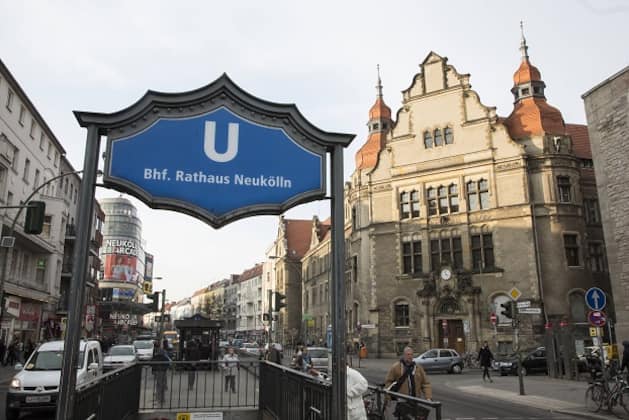For Friedrich Merz, the integration problem begins in schools. FOCUS Online author Aaron Baumgart sees an opportunity right there and reports on his time as a volunteer for a Berlin educational project.
With his angry appearance because of the New Year’s Eve riots, the CDU chairman Friedrich Merz attracted attention on TV on Tuesday evening. For him it starts with “the little pashas” in the schools. “These are mostly young people from the Arab world who are not willing to follow the rules in Germany, who enjoy challenging this state,” he said on Markus Lanz’s ZDF talk show.
Merz received a lot of criticism for his statements. SPD leader Saskia Esken said: “Anyone who describes Germany’s children with a migration background as undesirable people on talk shows divides the country and deliberately destroys the cohesion of our society.”
The schools Merz is talking about are well known to me. During my bachelor’s degree, as a volunteer for a Berlin educational association, I saw the inside of dozens of schools. The employees of the educational project not only talk to the students about sexual diversity, but also about role models and discrimination of all kinds.
I remember one experience in particular, which was characteristic of the problem but also the solution: In October 2018, my colleague Maria and I went to a school on Sonnenallee in Berlin-Neukölln. We usually talk to the students alone so that they feel more free, but at the time a teacher and a social worker insisted that they participate. They feared a lot of interference from the 9th grade students and wanted to support us. Almost all the children here have a migration background, and they may not be able to cope with the subject, it was said. I cannot confirm this assumption from my own experience.
First we built a circle of chairs and introduced ourselves and the project. When it became clear that it was also about being gay, the students got loud. A teenager suddenly jumped up and wanted to leave the room. “If my son becomes gay, I’ll kill him,” he exclaimed and obviously had no problem sharing his opinion with the teachers. We were able to calm him down and finally he sat down again with his arms crossed and made it clear to us that he would definitely not take part anymore.
Maria and I were unsure. Normally now would have been the time for us to come out to the students. In the association, every employee is gay, lesbian, bisexual or not heterosexual in any way. But the aggressiveness of the student unsettled us and we decided to postpone our outing.
Poverty, violence, neglect – Neukölln is just the beginning
But the group got looser and looser and after a short break we agreed to come out after all. Because there should be a question and answer session in which the students could ask us anything they might otherwise not dare to ask. Because we noticed again and again that even among the coolest young people, sex can still be considered taboo. There are also many questions they simply cannot ask at home. When my colleague started it, things immediately became restless. “What, you’re a lesbian?” “You can’t tell.” “But you’re completely normal!”
We usually let the students write questions on slips of paper anonymously, but they were way too excited. “How did you notice that? Have you ever been teased about it? How does it actually feel to be in love?” The young people were particularly touched by the rejection that Maria experienced from her parents. We argued until the social worker called our attention to the time.
But before we said goodbye, the student approached us, who shortly before had wanted to kill his hypothetically gay son. Now he held out his hand to us. “Hello, I’ve got a lot to think about now,” he said as he shook our hands. “You guys are really all right.”
Moments like these are the reason for my volunteer work. If I had thrown the student out of the workshop right away, he would not have had a chance to change his mind. We don’t expect to be able to change young people’s minds instantly, but it’s often enough to turn a cog in motion.
Friedrich Merz is right on one point: Berlin schools can be tough, but districts like Neukölln are not lost. Social projects in particular, in which people talk to and not just about the “little pashas”, are a step in the right direction.
